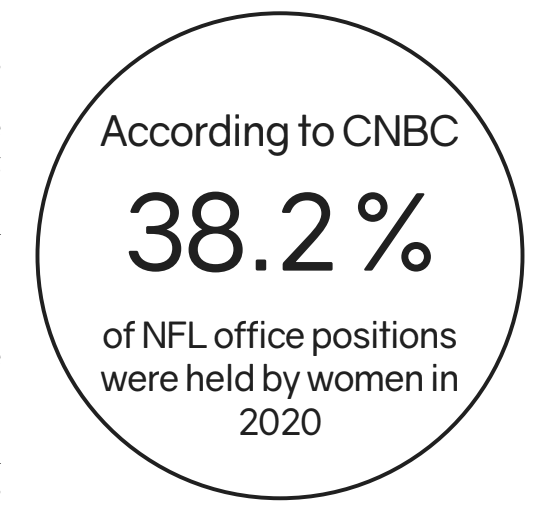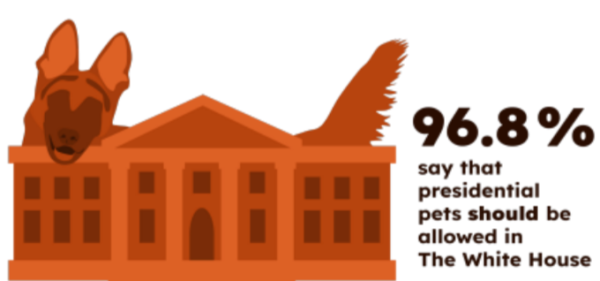Sexism runs rampant in the NFL’s hiring practices

There are still very few jobs held by women in the NFL.
April 14, 2022
Despite progessive moves allowing the incorporation of women in male-dominated spaces, the lack of female executives in the National Football League (NFL) is a constant issue in today’s society.
There is a stigma in the NFL claiming that women do not have enough football knowledge to coach or hold office positions. For decades, football has been viewed as a sport that only strong men should play or coach.
Women have been turned down from NFL jobs because critics say they are too weak to handle the game, however, with a global fight for women’s equality on the rise, the NFL is adapting.
In 2015, history was made when Dr. Jen Welter became the first female to coach in the NFL, training the Arizona Cardinals inside linebackers during preseason.
Dr. Welter prepared for this achievement by earning her PhD in psychology as well as her Masters in sports psychology from Boston College.
“If I had told someone I wanted to be an NFL coach, they would probably have looked at me like I was crazy,” Welter said. “It’s greater than imagined.”
Since Welter’s debut, the NFL has welcomed more women to executive coaching positions, opening up a plethora of opportunities across the league.
Additionally, the NFL has begun to allow women to become referees, after years of implementing misogynistic ideals into society. Shannon Eastin was hired to a part-time referee position in 2012, now totaling over 16 seasons of officiating.
“Knowing that I’m a female in a man’s world, I’ve always put the most pressure on myself,” said Eastin. “I have to be bigger, stronger, and know that I understand the rules. I have to do things even better than the men that are working.”
The league hired its first full-time female referee, Sarah Thomas, in 2015, who became affiliated with the sport shortly after college. In 2007, Thomas also became the first female referee to officiate in a playoff game and the Super Bowl.
More female coaches have since been added to the NFL teams’ rosters. In 2020, Katie Sowers became the first female to ever coach the Kansas City Chiefs in the Super Bowl. Sowers earned her Masters in kinesiology from the University of Central Missouri.
“I was proud to see the feedback of young girls who are now believing that they could also coach, they can be a part of the game just like the men,” Sowers said.
In Feb. 2020, the NFL hosted the Women’s Careers in Football Forum, where women gathered to talk about initiatives and achievements in the NFL, educating and connecting each other about the league.
Sophomore Brenna Furniss of Spring Lake Heights explains that by having women in higher positions, teams run the risk of having less qualified professionals.
“I love to see women’s coaching spots growing in professional sports, but can teams be the best they can be with a less experienced coach?” Furniss said. “Hiring a woman that doesn’t have as much knowledge isn’t always a good thing, but I can’t wait to see what happens.”
In 2020 there were only eight women in coaching positions in the NFL, showing that slowly, more women are taking on roles in the sport. As of this year, the number has risen to 12.
As the number of women hired by the NFL increases, change and equality are becoming more apparent. Women are getting the chance to do things in the NFL that they would have never had the chance to do before, and these accomplishments deserve recognition now more than ever. Welter said in a 2014 Today interview, “I’d like to say the one thing I couldn’t do was listen, and that’s why I made history.”














